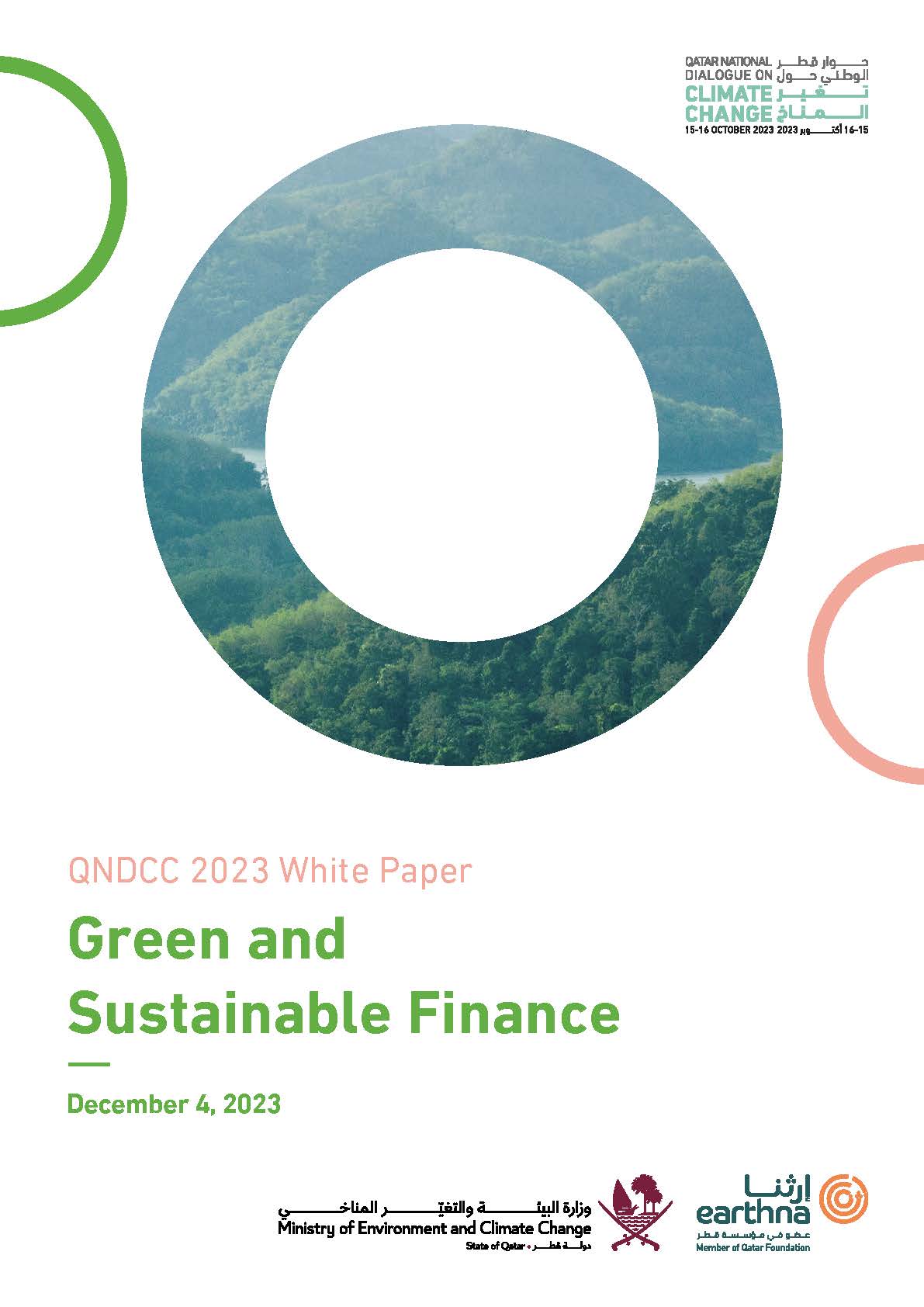
Executive Summary
Drawn from Qatar National Dialogue on Climate Change (QNDCC) held in October of 2023, this paper’s findings and analysis synthesize insights from the panel session “Green and Sustainable Finance – Products and Investments” and supplementary research. The paper highlights the significant role green and sustainable finance plays in addressing the urgent and complex challenge of climate change, presenting outcomes and recommendations essential for enhancing Qatar’s national sustainability goals and fostering local and regional initiatives.
The first section of the paper provides a comprehensive overview of the global landscape of green and sustainable finance, emphasizing key milestones such as the World Bank’s introduction of Green Bonds in 2008 and the substantial investments in green and sustainable bonds in the Gulf Cooperation Council (GCC) region. Notably, there is a significant rise in green bonds in Asian countries, with China’s green bond issuance reaching $104 billion and the Republic of Korea issuing a sustainable bond valued at $500 million. Europe’s initiatives like the French energy giant EDF issuing $1.9 billion green bond for financing sustainable projects, and the GCC’s commitment to sustainable investments by issuing green bonds and Sukuk, with a total value surpassing $8.5 billion in 2022, underscore a global paradigm shift towards environmentally responsible finance.
The subsequent sections focus on specific regional contexts, spotlighting Qatar’s journey into sustainable finance and its current emerging position. Notable milestones include Qatar National Bank’s (QNB) issuance of Qatar’s inaugural green bond in 2020 and the collaborative efforts of financial institutions like Qatar Development Bank (QDB) and Dukhan Bank in fostering sustainable projects. Qatar’s alignment with Socially Responsible Investing (SRI), heightened Environmental, Social, and Governance (ESG) awareness, and integration of Islamic finance principles further solidify its leadership in the field.
The paper then delves into the challenges faced by the global community in advancing green and sustainable finance. Issues such as limited insurance coverage, dependence on conventional energy resources , data
and capacity gaps, regulatory challenges, and the lack of government incentives and strategies are identified. This is followed by recommendations, which emphasize collaborative efforts, policy innovation, and financial institution engagement to overcome these challenges. The final section synthesizes these recommendations into a cohesive strategy for addressing key challenges.
It underlines the importance of collaboration between governments, financial institutions, private investors, and regulatory bodies. Policymakers are encouraged to intervene directly in the real economy, providing subsidies, taxes, or state guarantees to foster green investment. The collaboration between private investors, financial institutions, and governments is highlighted as essential to incentivize green finance and align policies with sustainable objectives. Additionally, prioritizing the development of taxonomies and standards, addressing regulatory gaps through global collaboration, and integrating ESG principles into organizational culture are emphasized for a comprehensive and effective approach.
The paper recognizes the transformative potential of green and sustainable finance, positioning it as a crucial driver for global environmental responsibility. Qatar’s commitment to these principles, aligned with international trends and standards, signifies its role as a leader in the pursuit of a sustainable and resilient future. The ongoing dialogue, exploration of opportunities, and adaptive measures showcased in the wake of global challenges reinforce Qatar’s dedication to driving its sustainability agenda forward, guided by the Qatar National Vision 2030 (QNV 2030).
